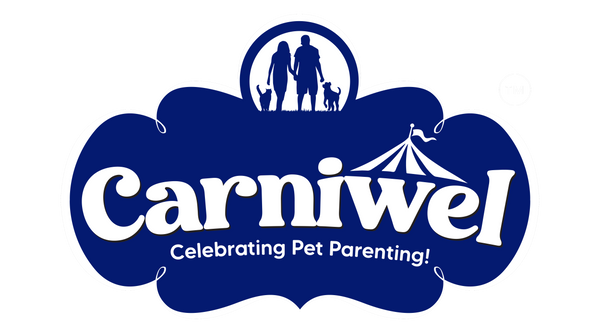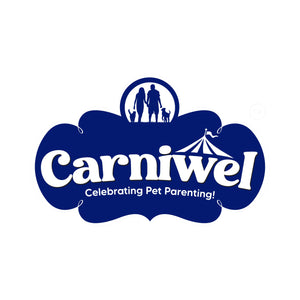Rainy season is a time for illnesses, not only for us humans but our beloved dogs and cats too!
For most of us, monsoon means long naps, chai, and the rhythmic hum of rain on the balcony. But for our pets? It often means muddy paws, damp fur, and, unfortunately, more visits to the vet. Monsoon illnesses in dogs and cats are real—and more common than you might think.
From itchy skin to upset tummies, pets feel the season deeply. And if you've ever seen your usually-bouncy dog curled up and sulking or your cat losing interest in their bowl, you know something’s off.
But here’s the good news: with the right care (and the right pet food), most of these illnesses are entirely preventable. Let’s walk through the ones to watch out for—and how to handle them like a pro.
1. Fungal Skin Infections: When wet fur becomes a hotspot
One of the most common monsoon illnesses in dogs and cats is related to skin—because moisture loves to stick around under their fur. Skin and coat health in cats and dogs are a lot like human skin, hair, and nails to the extent that they are indicative of general health and well-being.
What to look for:
- Red, itchy patches (Dermatitis)
- Circular bald spots (Ringworm)
- Musty-smelling skin (Yeast infections)
Long-coated breeds like Golden Retrievers and Persians are especially at risk. And cats? They’re notorious for hiding their discomfort—until they’ve scratched themselves raw behind your back. To rule out any nutrition-related issues, make sure that the pet food you’re giving your dog or cat includes Omega 3,6 Fatty acids. Always consult a veterinarian for a proper diagnosis if you see any of the above-mentioned symptoms.
Try This at Home:
Keep a soft towel near the door. Dry your pet after every walk or balcony sprint. For longer-haired breeds, brushing helps air out the undercoat and reduces the chance of infection.
2. Dogs and cats get the sniffles too!
The wet weather makes it easier for viruses and bacteria to spread—especially in poorly ventilated homes or shared pet spaces.
Cats and dogs can both suffer from monsoon-related respiratory issues, including:
- Sneezing and coughing
- Runny nose or watery eyes
- Breathing difficulty (especially in flat-faced breeds like Pugs or Persians)
If your pet is suddenly quieter than usual, or if they start coughing or wheezing, it’s worth checking in with your vet sooner than later.
Did You Know?
Humidity doesn't just affect breathing—it also suppresses your pet's immune response. A strong immune system (built on quality nutrition and clean air) is key to staying sniffle-free. Make sure to include cat food or dog food that builds immunity in your pet’s diet.
3. Stomach Upsets: Is the rain messing with their food?
Let’s talk about what’s in their bowl. Spoiled dog food or cat food, dirty water bowls, or even licking a puddle on the street can cause:
- Vomiting or diarrhoea
- Sudden loss of appetite
- General discomfort or bloating
Pet Food Tip:
Always store dry pet food in airtight containers away from damp areas. Exposure to humidity can degrade quality, especially with large kibble bags.
Carniwel's dog food and cat food lines come in resealable packs designed to preserve nutrition—even during the stickiest, sweatiest monsoons.
4. Parasite Problems: Fleas, ticks, and everything icky
Contrary to popular belief, monsoon doesn't scare off parasites—it encourages them. Moist soil and decaying foliage are perfect breeding grounds.
Look for:
- Excessive scratching
- Small black or brown dots on fur
- Pale gums (a sign of anemia caused by fleas)
Regular grooming, tick sprays, and hygiene routines are your best defense. Oh, and don’t forget to vacuum—yes, even that spot under the couch your dog insists on claiming!
5. Leptospirosis: A hidden danger during the rains
This one’s a biggie. Leptospirosis is a bacterial infection that spreads through contaminated water or contact with rat urine (common on Indian streets and apartment corners during rains).
Dogs are most vulnerable, but cats aren’t completely safe either.
Symptoms:
- High fever
- Vomiting
- Yellow eyes or gums
- Muscle tenderness
It’s serious and can be transmitted to humans too. Vaccination, clean drinking water, and avoiding puddles go a long way here.
Why good pet food is your first line of defense
You’ve probably heard this before: immunity starts with nutrition. But in the monsoon? It’s everything.
Here’s what your pet’s monsoon diet should focus on:
- Fresh, high-quality proteins like Chicken, Lamb, or Fish
- Natural Omega-3 sources (Carniwel uses Antarctic Krill for 5x more Omega-3s than regular fish oil)
- Antioxidants to boost immunity
-
Easily digestible formulas (especially for pets with sensitive stomachs)
Carniwel dog food and cat food offers Fresh recipes, Honest ingredients and is Proudly Indian. It is made specifically for dogs and cats in Indian homes. Whether your pet prefers fish or superfood-based vegan meals, there's something for their taste buds and their health.



 https://carniwel.com/pages/about-us
https://carniwel.com/pages/about-us



